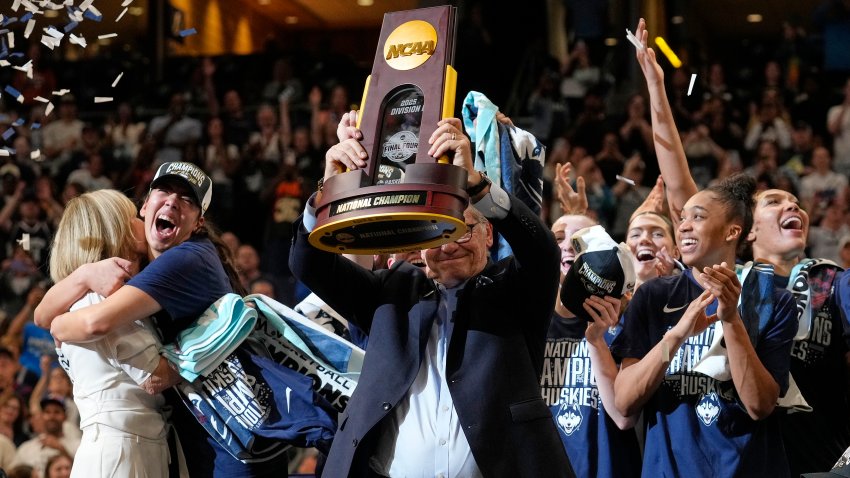

The Latest
-

Worried about tariffs and prices? Do this instead of panic buying, expert says
The fear of tariffs means millions of Americans might be tempted to stock up on certain goods before prices begin to rise. But, experts warn, don’t rush into panic buying.
-

Pass-catchers who make sense for Patriots on Day 2-3 of 2025 NFL Draft
If the Patriots don’t take a WR or TE in the first round of the 2025 NFL Draft, these players might interest them on Day 2 and Day 3.
-

Celtics-Magic recap: Short-handed C's fall in final road game
The undermanned Celtics didn’t have enough firepower to keep up with the Magic as they fell in Wednesday’s matchup, 96-76.
-

WATCH: Bill Belichick mic'd up at UNC football practice
Legendary Patriots head coach Bill Belichick was mic’d up as he led practice for the North Carolina Tar Heels.
-

Student stabbed outside Brockton middle school
A student was stabbed outside a middle school in Brockton, Massachusetts, on Wednesday afternoon, according to police and school officials. Brockton police said they responded to the Plouffe Middle School on Crescent Street around 2:30 p.m. and are currently investigating a fight between students outside the school that resulted in one student sust... -

Supreme Court allows Karen Read retrial to start amid her double jeopardy appeal
The Supreme Court has declined to stop Karen Read’s retrial from getting underway before considering her appeal.
-

How can McDaniels evolve his offense with Maye? Curran, Perry discuss
Tom E. Curran and Phil Perry discuss how Josh McDaniels can develop his offense with young QB Drake Maye at the helm.
-

MBTA commuter train hits truck in Canton; video shows impact
An MBTA commuter train hit a truck in Canton, Massachusetts, on Wednesday, closing a street and impacting Commuter Rail service. Video caught the crash.
-

Man accused of vandalizing Tesla in Hingham identified
A man accused of vandalizing a Tesla parked in Hingham, Massachusetts, last week has been identified by police.
-

After homemade explosive goes off near Chelsea apartments, man arrested, police say
A man was arrested after allegedly setting off a homemade explosive near a residential walkway in Chelsea, Massachusetts, on Sunday.
-

Why Patriots should consider Georgia's Jalon Walker with No. 4 pick
Jalon Walker dominated against top competition in the SEC last season. Should the Patriots take him early in the 2025 NFL Draft?
-

Jury deliberating in trial of Dover doctor charged with wife's murder
Ingolf Tuerk is charged with first-degree murder in the strangling death of his wife, Kathleen McLean, five years ago in Dover, Massachusetts
-

Mass. students tell lawmakers education not measuring up
Students warned lawmakers Tuesday of funding deficits and unpredictability, faculty layoffs and slashed electives at regional and rural schools, piling on to heightened calls to “crack open” the state’s Chapter 70 and rural aid funding formula.









